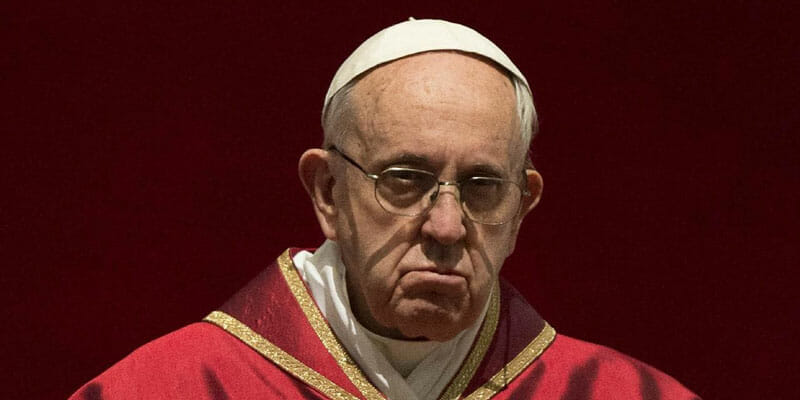MY PREVIOUS POST was somewhat along the lines of automatic writing, expressing immediate reaction more than cool analysis. So, now I find myself noting a few other things, and a raising a few questions, Maybe someone wiser than I might address them.
- Interestingly the papal attitude to those who “adhere” to pre-conciliar liturgical forms is to view them not with pastoral care but “paternal solicitude” (para 2 of preamble).These are not mutually exclusive, of course, but this language was no doubt chosen deliberately. Traditionalists are to be seen naughty children, perhaps?
- And these naughty children adhere (with childish stubbornness??) to “liturgical forms antecedent to the reform willed by the Vatican Council II” (ibid.). This seems to imply that any form subsequent to the Council is viewed with parental approval. So, Ordo MIssae 65 is OK? What about the Ordinariate Use? It is post-conciliar (yay) but not the Ordinary Form (boo) nor “promulgated by Saint Paul VI and Saint John Paul II” (Art 1). Has the curial task force forgotten about the Ordinariate? Or are they saving them for another document?
- “the reform willed by the Vatican Council II:” here is a pregnant phrase. It is a very long stretch to cast the OF as being “willed” by the Council, not least in light of its politely tepid reception, as the Missa normativa, at the Synod of Bishops in 1967. Ordo Missae of 1965, however, has an impeccably strong claim to being willed by the Council. So, in conjunction with #2 above, the implication seems to be that OM 65 should be licit for use today.
- Para 3 is confusing: “ In line with the initiative of my Venerable Predecessor Benedict XVI to invite the bishops to assess the application of the Motu Proprio Summorum Pontificum three years after its publication, the Congregation for the Doctrine of the Faith carried out a detailed consultation of the bishops in 2020.” What happened to the assessment due in 2010; why is the assessment a few months ago in 2020 cited instead?
And further, “The results have been carefully considered in the light of experience that has matured during these years.” It is the experience that has matured not the assessment. The assessment, far from maturing, is an equally vigorous application of the restrictions imposed by Paul VI on the old Mass. Paul VI, of course, did not have the benefit of maturing experience. - As to the assertion in Article 1 that the post-1969 liturgical books are “in conformity with the decrees of Vatican Council II,” suely that is a moot point not least in light of the maturity of assessment that has been allowed by research and practice in the last 50 years? Conformity may be claimed easily enough, but it is not so easily proved.
- That Traditionalists must not “deny the validity and the legitimacy of the liturgical reform, dictated by Vatican Council II and the Magisterium of the Supreme Pontiffs” (Art 3 §1) is to put to many, even beyond the Traditionalists, a very challenging task. No one can doubt the validity of the rites by the Church’s own definition of the sacramental validity. But what is the definition of “legitimacy” here? Does it mean licitness? If so, no problem: there was nothing illegal about them. Or does it mean authenticity? Given #5 above, authenticity is debatable at best.
- How like the English Reformation is the official post-conciliar liturgical strategy.
- Re-reading the motu proprio one sees that it is strikingly cold and official in tone. Perhaps it is a virtue that no pastoral sensitivity nor desire to feed Christ’s sheep is is asserted in the document. That would be hard to maintain.

Thank you Father.
Re point 5, an examination of the account in Fr Bouyer’s memoirs of the jiggery pokery of Bugnini in the consilium would amply justify your scepticism.
And if the ‘some’ (how many? How about some transparency?) bishops who expressed concerns about SP want to stem the flow of young people to the EF, could they do something to raise the bog standard of far too many OF liturgies?
To put my cards on the table, I am not a RadTrad. I mostly attend my local OF parish and occasionally attend EF Masses -and take pleasure in it!
Before this pope, I have experienced an number of popes in my lifetime. To a man, I have experienced them as gentle, kind, holy and generous. Not so this pope. God is putting a challenge on my heart to heed the words of St. Teresa of Calcutta: “Some people are annoying. Love them anyway.”
Here, perhaps, is over of the less obvious reasons why Catholics have to pray for popes daily: left to themselves they sink like Peter on the lake, sink either into self-will or cowardice.